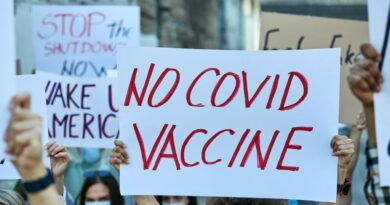Second Pfizer Jab Taken After Shorter Interval Has Higher Myocarditis, Pericarditis Risk, Doctor Says
An 11-year-old Hong Kong girl vaccinated with the Pfizer-BioNTech vaccine had symptoms of myocarditis.
Since then, the Hong Kong Centre for Health Protection extended the interval between the first and second doses of the Pfizer-BioNTech vaccine from three to eight weeks for people between 18 and 59.
Dr. Edmund Lam Wing-wo, a member of the Scientific Committee on Vaccine Preventable Diseases, responded on a radio program on June 20, 2022, that the World Health Organisation announced in January 2022 their recommendation for an 8-week interval between the first two doses. Studies have also shown that the risk of myocarditis or pericarditis caused by a longer interval could be lower. But due to the severe pandemic situation in Hong Kong during January, when all citizens were in urgent need of injections, they decided not to follow the WHO guidelines.
WHO updated the vaccination interval guidelines in January 2022. The interval between the first and second doses should be four to eight weeks, where eight weeks can provide better immunity, and also lower the chance to suffer from myocarditis or pericarditis. Dr. Lam added that comparing the longer and shorter intervals, the risk of developing pericarditis is 10 times lower for the longer interval compared with the shorter interval. And as younger people have a higher chance of developing the symptoms, the recommended interval in January 2022 for vaccination of them was made at 12 weeks.
On Feb. 25, 2022, the government proposed to reduce the interval between the first two doses of Pfizer-BioNTech vaccine for those aged 5 to 17, from 12 weeks to eight weeks; and that between the 18 to 59-years-olds has remained at three weeks. For children 5 to 17 years old with an impaired immune system (immunocompromised) a three-week interval was recommended.
As to why the WHO’s 8-week vaccination interval was not followed, Dr. Lam said that they had to consider all factors such as the risk of different age groups and changes in the local pandemic situation. In January, the pandemic situation in Hong Kong became increasingly urgent, and it was under high pressure to let the public complete the vaccination as soon as possible to enhance general protection. He believes that only because of the risk of myocarditis, as well as long-term antibody levels, the vaccination interval was extended to eight weeks.
As for the chance of having adverse conditions for those who received the second dose of the vaccine three weeks from the first, Lam said that they should not worry, because the chance of suffering from myocarditis is extremely low. There might only be minor symptoms such as raised heartbeat within one week after vaccination. The risk associated with myocarditis remains extremely low even by then. He suggested that if there is no urgent need, the public can choose to be re-vaccinated after eight weeks, which is both beneficial to the long-term protection and to the risk of myocarditis.
Front-line independent doctors in the United States together with leading heart specialist Dr. Peter McCullough and vaccine specialist Dr. Robert Malone said children are at such a low risk of serious health problems from COVID-19 and should not be vaccinated at all.
This article has been archived for your research. The original version from Epoch Times can be found here.



